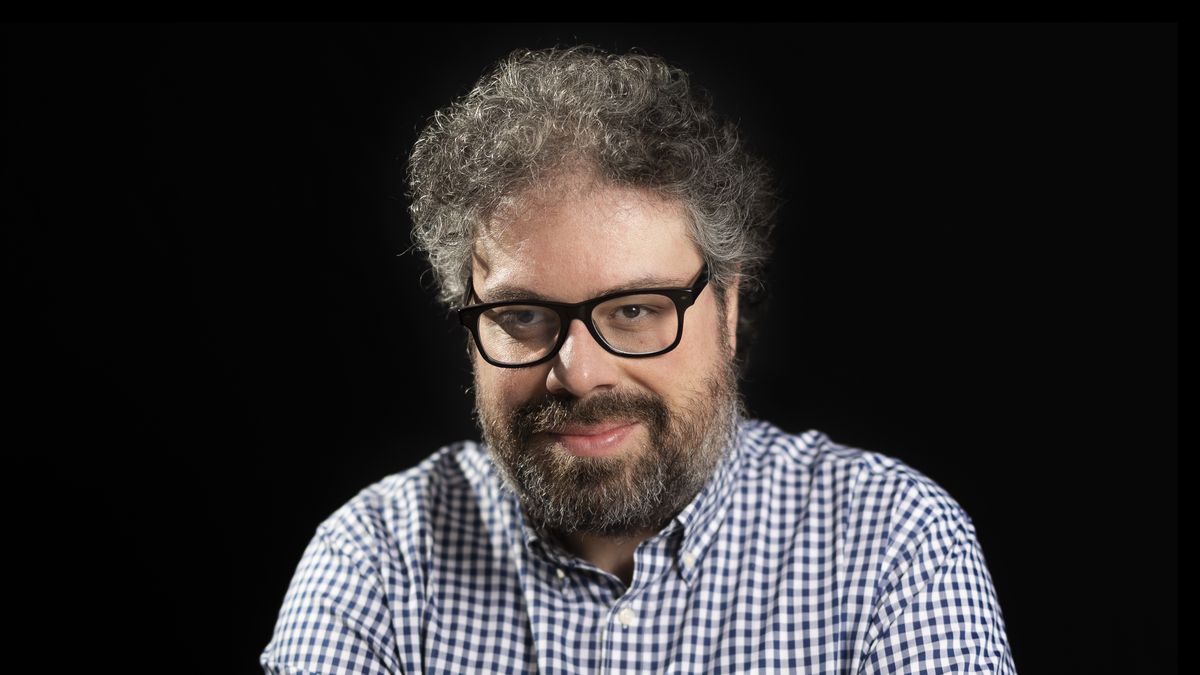The Madrid writer Sergio del Molino presented “The Germans” at the Book Fair, which won the 2024 Alfaguara Novel Prize for “masterfully narrating an event related to the mutations of Nazism, with profound consequences in today’s world.” We dialogue with him.
Journalist: Do children inherit the guilt of their parents’ political actions? That’s what his novel revolves around.
Sergio del Molino: The short answer is no. In rational terms, one can only be responsible for what he has done, but things are more complicated if it is a family with questionable actions. If you are born into a family that has given us a good life, that life is due to what your parents, grandparents, ancestors did, and it is inevitable to think that it is the result of their decisions and actions, which are sometimes criminal, aberrant. , because these acts also define us, which places us in a dilemma. And there is no answer but different ways of raising the issue. Hannah Arendt saw that there was a lot of imposture regarding the guilt of the children of Germans in Nazism in trying to make them guilty of what they had not done. The dilemma does not have a clear answer. There are wrong answers. Becoming a victim to avoid the past from which one comes, and that is a falsification, a manipulation, a way of transferring to society what belongs to one and his family. Other options are to ignore the family, deny the past or accept it and make it your own. Everyone deals with it as they want or can. I do not excuse the characters of “the Germans”. It is not the attribute of the novel to give answers but to raise dilemmas and paradoxes, and see how the characters become trapped in that spider’s web.
Q.: Gabi Schuster, protagonist of the novel, is dead. In his youth he seems to vindicate Nazism, then he is the hero who confronts family traditions.
S. del M.: He is expelled from school for giving the Nazi salute. Gabi is a ghostly hero summoned by the rest. His act of breaking forces others to define themselves. Among them his brothers Eva and Fede. Since his death, Gabi highlights the cowardice, the hypocrisy, and makes her uncomfortable. He took a step that the others did not dare to take. Perhaps he gave it up out of unconsciousness, because he was living a party, something incomprehensible to the rest, and he is dying to live the way he wants.
Q.: Gabi confronted her father, who linked them to Nazism, something that the three children try to deny.
S, of the M.: The father is halfway between the living and the dead. He is still alive, but they treat him as if he does not exist. They dont want it. They don’t try to understand it. They hate it. In the literary tradition of that conflict, affection ultimately wins. Aeneas carries his father out of hell on his shoulders. Here none of the sons would have gone to hell to look for his father, but to see how he burns. It is a taboo to express that you do not love your father, in the end there is always a redemption, a forgiveness, in “The Germans”, no.
Q: They despise the father who made them rich. Did it weigh on them and on you that you sponsored neo-Nazis?
S, from M.: Perhaps it is inevitable to see continuity with what is happening now in the interwar world and to see that those dormant forces have not disappeared. We are at a time when they are emerging. There will be more cases like that of Juan Schuster that will allow us to trace a thread of continuity between genuine Nazism and the forms of totalitarian pretension that we now have in the world. That concern, which was not in the novel, was filtered unconsciously.
Q: Was it the history of a particular family that led you to choral treatment?
S. del M.: It is in the family novel where it reaches its richest expression, where it explodes in all its possibilities. The Schusters are an unclassifiable family. They belong to a group of German refugees from the First War who leave Cameroon and end up in Zaragoza. Spain is a neutral country. They do not arrive as refugees, nor as exiles, nor as emigrants. They don’t fit into any of the expat categories. They are defeated because they have lost the country twice, but they do not function as defeated. They are achievers, industrialists who prosper and forge their empire. However, his story could be that of the outcasts. That ambiguity interests me. In my books, and in life, I like people who don’t have an easy classification. The Schusters are difficult to label, where they are from, who they are. This has been reflected from generation to generation in a progressive derangement, ending in a dysfunctional family where silence and violence operate. It is the fruit of not knowing what their place in the world is, and maintaining through all means an identity that they have invented, an imaginary homeland that they have built, that does not exist outside the small family sphere. Gabi, the rocker, has destroyed the fiction in which they lived, and makes his brothers have to face their dislocation of not knowing who they are in a world where everyone knows.
Q: What are you planning now?
S. del M.: I hope the Alfaguara award does not change me excessively and allows me to work the way I want to continue working, and be the writer the way I want to be. The award gives me a little leeway in the publishing industry, which in the following years will be more tolerant of me and will allow me more things. I’m going to try to take advantage of that space of freedom. In the immediate future I will have to decide to write a novel or an essay that I am working on. And study the proposals to turn “The Germans” into a film or series.
Source: Ambito
I am an author and journalist who has worked in the entertainment industry for over a decade. I currently work as a news editor at a major news website, and my focus is on covering the latest trends in entertainment. I also write occasional pieces for other outlets, and have authored two books about the entertainment industry.




